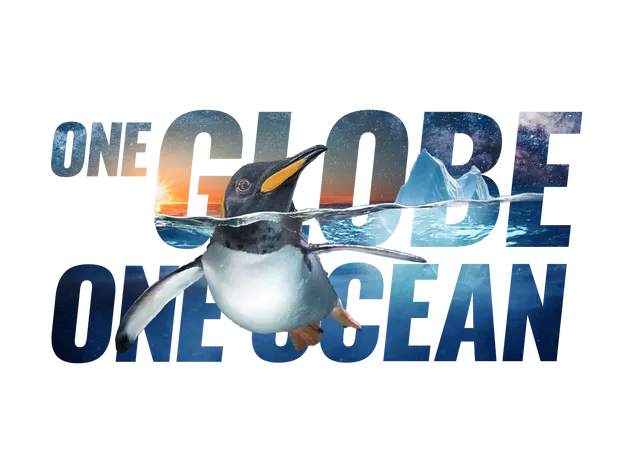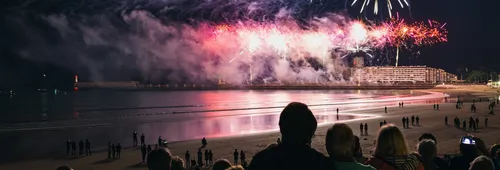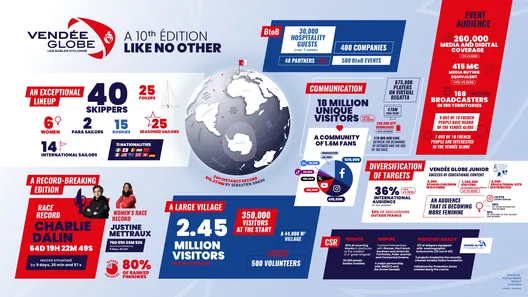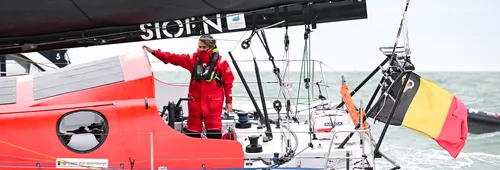The Vendée Globe aims to use the media impact of the event to raise public awareness of ocean conservation throughout the round-the-world race. By sailing around the world, the Vendée Globe sailors are highlighting the fragility of our oceans faced with global warming. They are direct witnesses to the changes underway, particularly around Antarctica, a region that is under particular threat.
Ranking


Soft mobility
The Vendée Globe adventure doesn't start in Les Sables d'Olonne! It starts from home, by using a low-carbon mode of transport to get to the race village. The organisers have set up a mobility committee to bring together all the public and private players involved and propose soft mobility solutions for getting to the village.

What is the Vendée Globe?
The Vendée Globe is a single-handed, non-stop, non-assisted round-the-world sailing race that takes place every four years. It is contested on IMOCA monohulls, which are 18 metres long. The skippers set off from Les Sables-d'Olonne in Vendée and sail around 45,000 kilometres around the globe, rounding the three legendary capes (Good Hope, Leeuwin and finally Cape Horn) before returning to Les Sables d'Olonne. The race has acquired an international reputation, attracting skippers from all over the world. Beyond the competition, it is above all an incredible human adventure.








































































































































